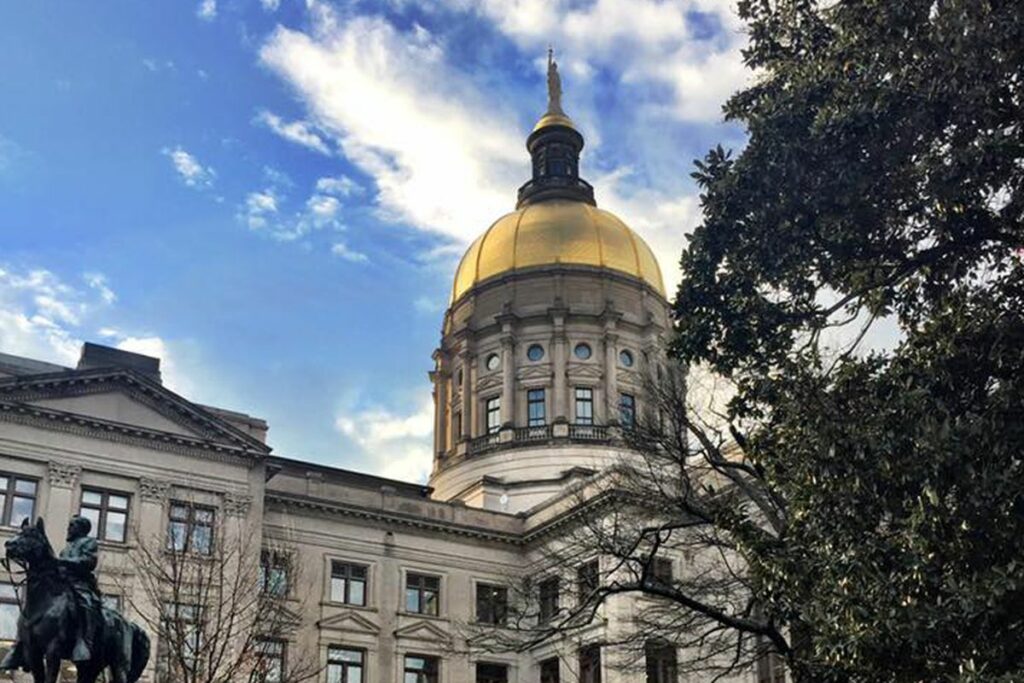
ATLANTA – A sure sign that Georgia’s coffers are flush with an unprecedented budget surplus is that for the first time in memory, the state plans to fund its annual list of building projects with cash instead of bonds.
The budget proposals Gov. Brian Kemp released during the first week of the 2024 legislative session call for spending more than $2 billion of the surplus on what the governor’s office described as “historic” investment in education, public safety, tax relief for Georgians, and infrastructure improvements across the Peach State.
“A strong economy and conservative fiscal management of state revenues … has led to record job growth, historic investment in communities from Bainbridge to Blue Ridge, $5 billion in tax relief, and enough funds saved to operate state government for months in an emergency, not days,” Kemp declared Thursday in his annual State of the State address to a joint session of the Georgia House and Senate.
Kemp’s $37.5 billion mid-year budget includes $1.9 billion for capital projects, all funded with cash. It’s a significantly larger pot of money than the $800 million to $1 billion the state’s annual bond package usually contains.
That capital investment doesn’t include other new spending in the governor’s budget recommendations designed to take advantage of the bulging surplus.
The list of new spending in the mid-year budget includes:
- $1.5 billion for transportation improvements, including $659 million for construction projects in the state Department of Transportation’s existing pipeline and $641 million aimed at improving the movement of freight.
- $500 million to reduce the Georgia Employees’ Retirement System’s debt.
- $450.9 million to build a new state prison.
- $400 million for technology improvements designed to increase the efficiency of the state’s workforce.
- $250 million for the Georgia Environmental Finance Authority to spend on local water and sewer projects.
- $178 million to design and construct a new dental school at Georgia Southern University’s Armstrong campus in Savannah.
- $50 million for a new medical school at the University of Georgia.
All of those spending items involve one-time appropriations, based on the state’s policy of not using surplus revenues to create long-term obligations, according to the Governor’s Office of Planning and Budget.
Another series of ongoing investments, most contained in Kemp’s $36.1 billion fiscal 2025 budget, includes $700 million in pay raises for state and university system employees and public school teachers. State and university system workers would get 4% cost-of-living adjustments (COLAs), while teachers would receive $2,500 COLAs and one-time bonuses of $1,000.
Another $205 million would go to local school districts for new school buses, $104 million would be set aside for grants to local schools for safety projects, and $66 million would restore a budget cut the General Assembly imposed on the university system last year.
The budget also would fully fund the state’s Quality Basic Education k-12 student funding formula.
Legislative Democrats say that new spending still is not enough to make up what for they see as chronic underfunding of education, health care, and housing.
Following Kemp’s State of the State address, Senate Minority Leader Gloria Butler, D-Stone Mountain, criticized the governor’s decision to use the surplus primarily for short-term investments. More permanent spending commitments are needed to erase a “disparity of opportunity” confronting Georgians, she said.
“Let’s use the surplus to try to make the American dream that is out of reach for so many a reality,” Butler said.
The Republican governor will present his budget recommendations Tuesday, kicking off three days of joint hearings before the House and Senate Appropriations committees. Kemp will be speaking remotely from Davos, Switzerland, where he will travel for the second year in a row to the annual World Economic Forum.